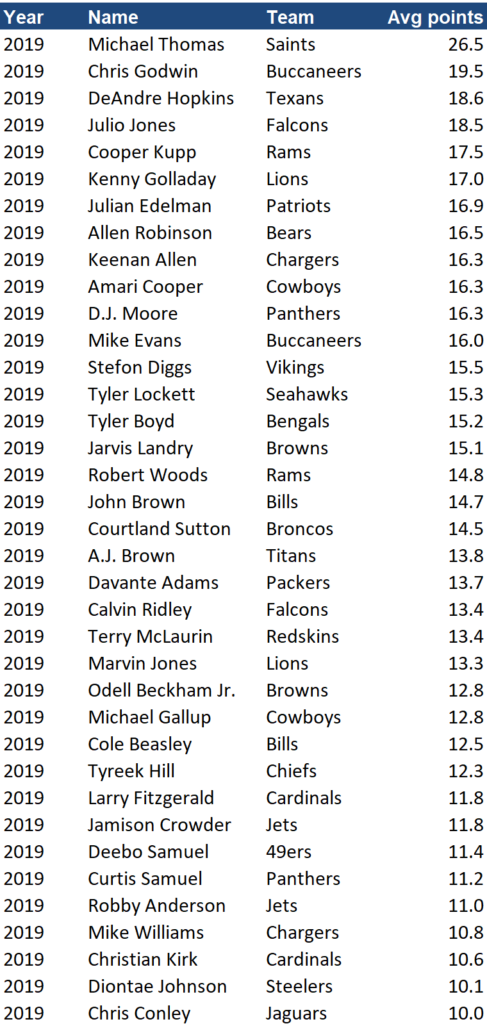
Should I draft a rookie wide receiver?
Should you select rookie wide receivers in your fantasy football draft? Does drafting that one “special” rookie over the veteran make you savvy or a sucker?
We’ve looked into whether you should draft a rookie RB, but should you draft a rookie WR? Rookie WRs are often big names with big college careers; they run blazing 40s; and they have big bodies. They’re the promise for the future. It also feels like it takes them a few years to mature into top flight talent.
So, what should you do? Should you spend a fantasy draft pick on a rookie wide receiver?
How do rookie wide receivers perform vs veterans?
Looking at a time horizon of the 2001 season through the 2019 season, let’s get a sense of how rookie wide receivers performed vs the vets. This time frame means that some of our data are little stale, but it also gives us a better sample size. We’ll also limit our consideration to rookie wide receivers selected in the first three rounds of the NFL draft. Sure, sure, anything can happen, but can you name a wide receiver selected after the third round who blew up their rookie year? Unless a few names jump off your tongue (and none jump off mine), let’s ignore those folks and limit the analysis to the early rounds..
We’ll also apply a blanket filter on the veteran wide receivers so that we’re only evaluating our rookies against vets who have a chance of getting selected in a fantasy draft. No need to get fancy here. We’ll limit our veterans to those who averaged at least 5 points per game the prior year. It’s fantasy football, so week 17 is thrown out and we’ll average the remaining 15 games – if a player was injured and didn’t play, their average goes down. We’ll end up with oddball examples of low scoring players from the prior year blowing up, but in general this should be reasonable.
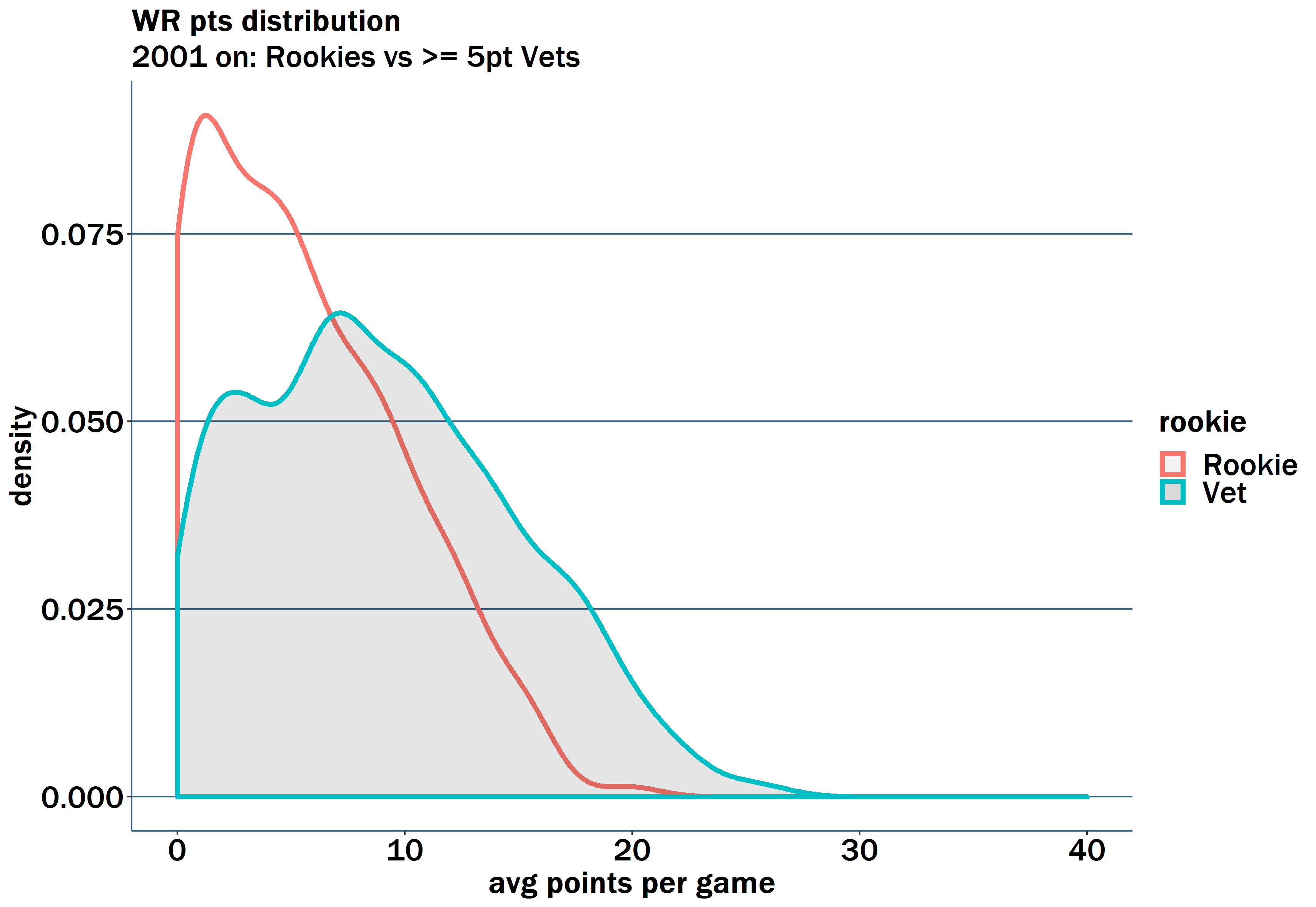
With these rules in place, what do we see? We see that veteran wide receivers perform much better on average than rookie wide receivers. Average points per game is higher for the vets and the upside is higher, too.
The results make sense and are in line with our initial gut feel that rookies take more time to mature. We also know that veterans give us a better data point than rookies – namely, points from the NFL the prior year is a great indicator of this year’s NFL performance (at least better than a year in college knowing that offenses, routes, and defensive backs tend to be more challenging in the pros).
Okay, as a group wide receivers from the first three rounds aren’t as good as the acceptable veterans, but let’s look at performance by round to see if anything jumps out.
How does rookie wide receiver fantasy performance vary by round?
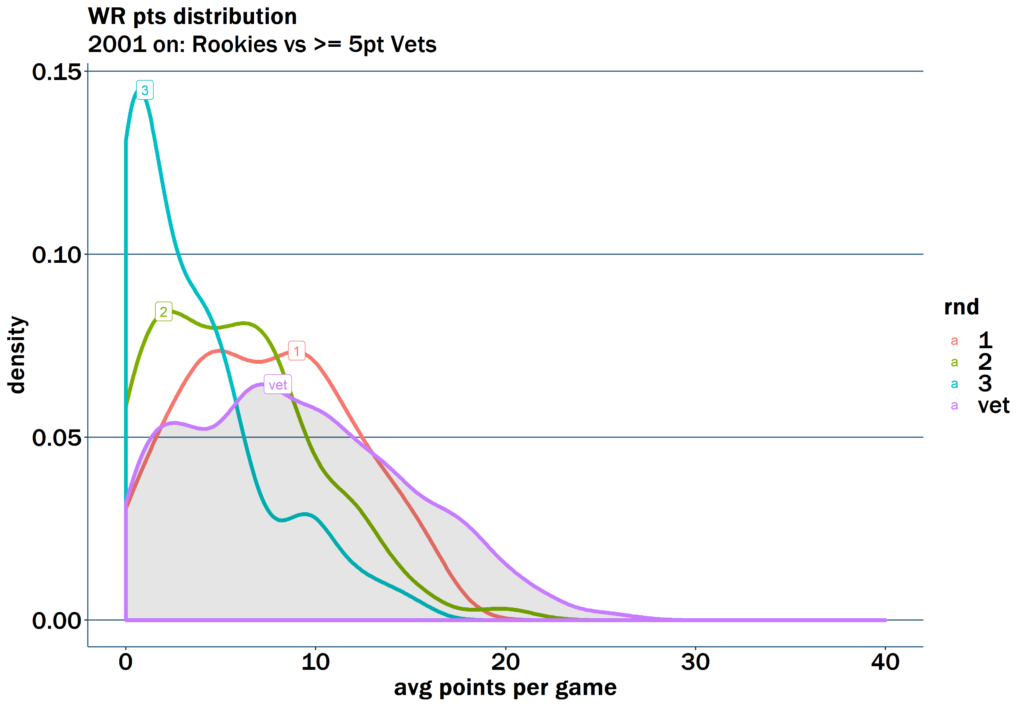
So… does anything jump out when we break the rookies out by round? Yes and no.
We definitely see a performance split by round. Can you find rookie wide receiver talent in rounds two and three? Eh… not so much. In general, we should avoid these rounds. Nothing to see here; keep moving.
Round one rookies look a bit better and seem somewhat more comparable to the veterans, but not by much. Keep in mind, these aren’t worldbeater veterans here; these are the “you probably aren’t going to draft anybody worse than them” veterans. First rounders being closer to this group doesn’t exactly spark confidence. Plus, the rookies still have a much more limited upside and higher downside risk. Why bother?
This trending definitely looks different from what we saw with rookie running backs. With the running backs, you could find great talent in round one and okay talent in round two. With the wide outs, though, the general outlook is poor. Let’s take a look at more recent years to see if things have changed.
How has rookie wide receiver performance changed over time?
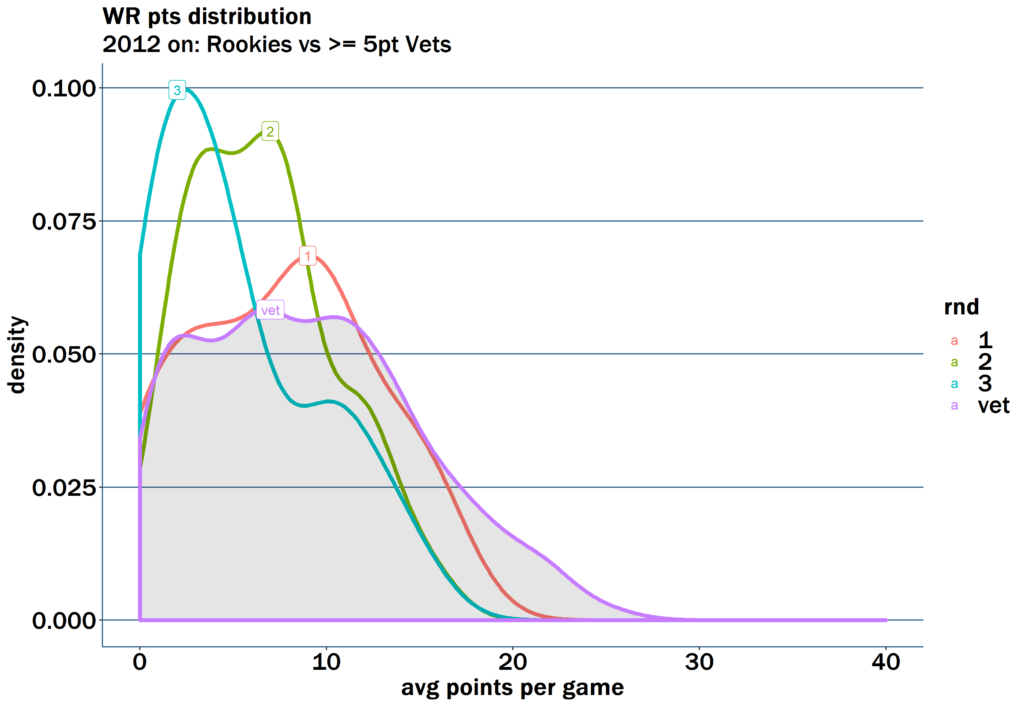
Answer? Not really.
Veteran performance drifted up a bit, but not much. Our first round performance improved a teensy bit in terms of distribution, but the upside didn’t move at all.
Second round looks about the same. Meh.
The biggest change we see is that third round rookie wide receivers improved a bit. Not in terms of upside, but in terms of point distribution at the low end shifting up slightly. While this is the biggest change (and academically interesting that NFL teams seem to be getting value out of their later picks faster), it’s also shrug inducing. So what if the round threes improve slightly? They’re still undraftable for your fantasy team.
Rookie wide receivers vs ‘the better’ fantasy veterans
Let’s limit our veteran wide receiver threshold to the players who scored 10 or more points per game the prior year. These wide receivers are actually pretty common – we see 37 of them from 2019, meaning every team in a 12 team league could walk away with three of them.
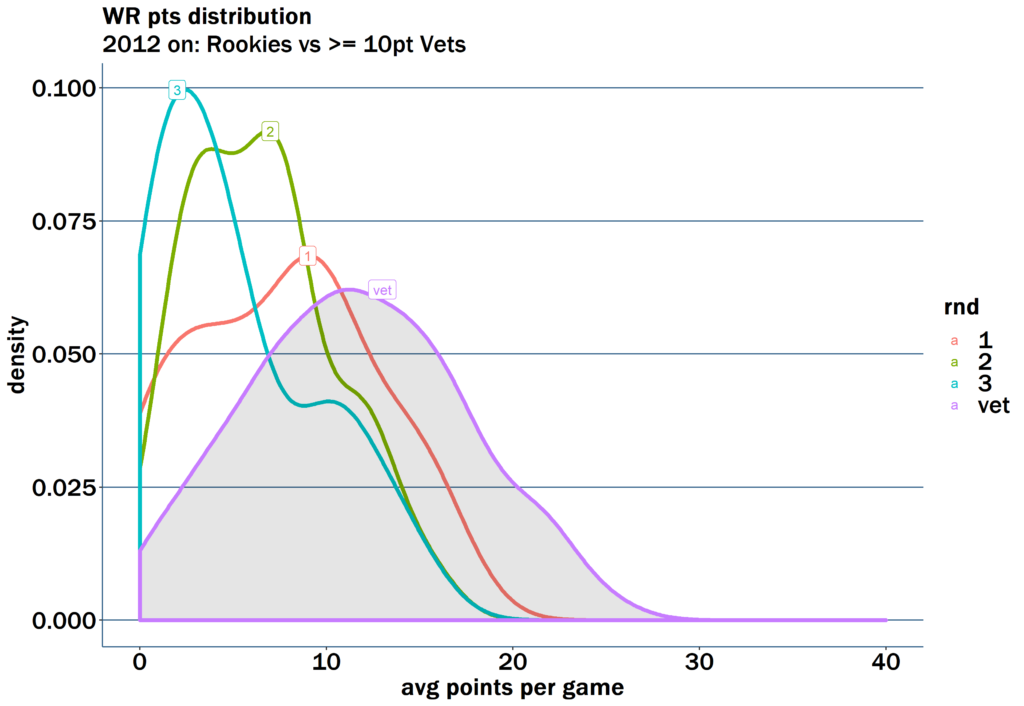
With the tighter veteran threshold, it’s not even close. Veteran wide receivers flat out perform better than rookie wide receivers. The basic takeaway here is to go for the vets who averaged more than 10 points per game the prior year. Don’t mess around in the rookie pool.
Who are these recent first round rookies?
Don’t believe the results? Here are the recent first rounders and how they perform in their first season.
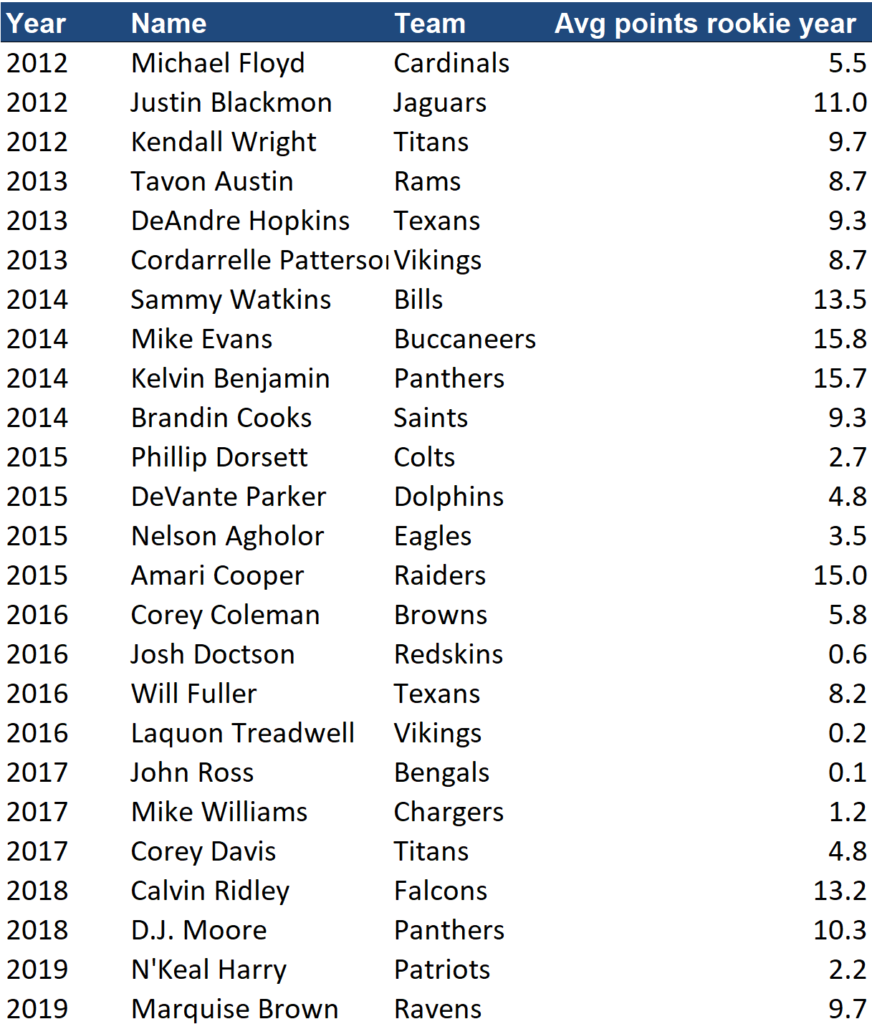
Now, back to my hunch…
So, are rookie wide receivers worth drafting? The hunch heading in was “no” and it turns out that our hunch was correct. Let the other owners in your fantasy league waste picks on rookies while you grab value with the vets.
What this means for you
Heading into the 2020 season, focus your fantasy wide receiver selections on veterans who averaged over 10 points per game the prior year. Ignore the rookies.
Who are your veteran wide receiver targets?
